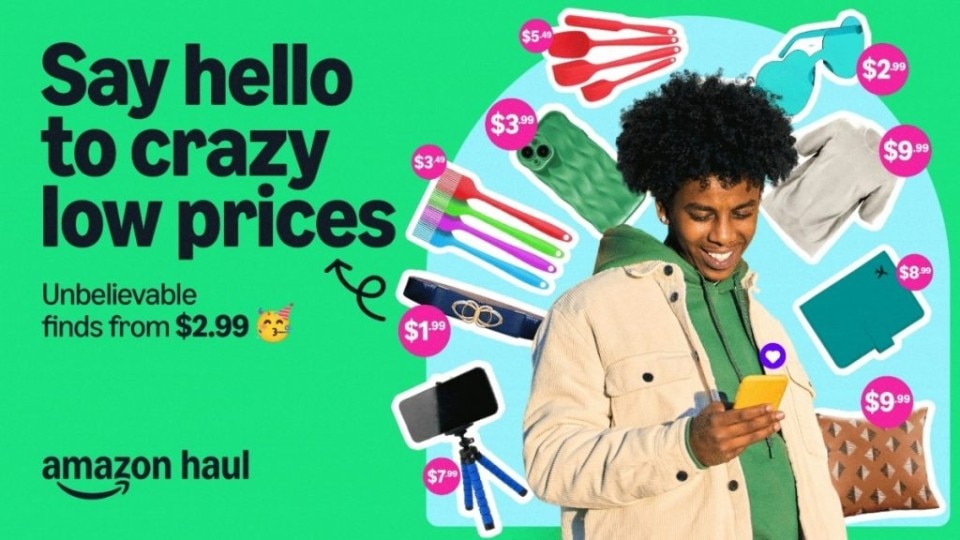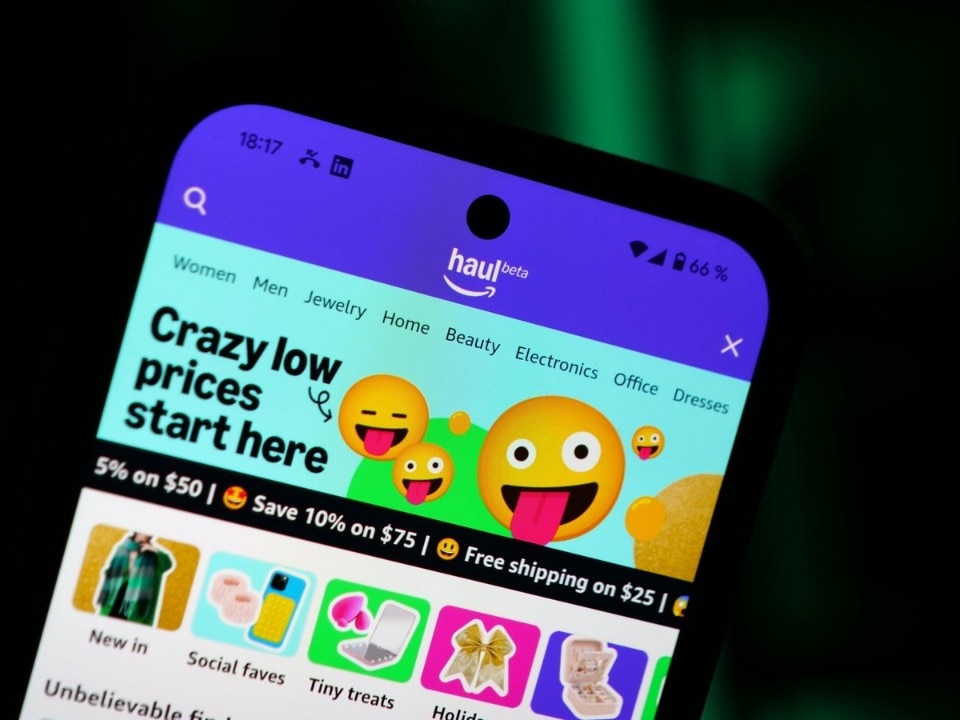No need to dig too deep. A quick look at Amazon Haul, a new corner of the Amazon Shopping app for products under $20, reveals the mechanics of a phenomenon that started more than two decades ago on YouTube. As the New York Times pointed out, the “haul” was once a form of vlog entertainment: creators would show off their shopping spoils – clothes, makeup, random tchotchkes – dumped onto a bed and discussed with the enthusiasm of a chat with close friends. Now, Amazon has brought that vibe into the digital marketplace, satisfying shopping cravings (for U.S. customers only, at the moment) with what it describes as “a place to discover even more affordable fashion, home, lifestyle, electronics, and other products with ultra-low prices.”
Dive in, and you’ll find all sorts of budget-friendly treasures: an iPhone 16 case for just over a dollar, touchscreen winter gloves for $3, a two-pack of barbecue tongs for under $5, and even a full jewelry set – necklace, bracelet, earrings – for less than $3. Sweetening the deal are discounts: spend $50 and get 5% off, or bump it to $75 for a 10% discount. Everything’s backed by Amazon’s usual guarantees, though shipping takes a bit longer – one to two weeks.

“Amazon Haul aims to help make shopping for fashion, home, lifestyle, electronics, and other products even more fun, easy, and affordable, all backed by Amazon’s A-to-z product guarantee so customers can shop with confidence that the products they’re purchasing are safe, authentic, and in the condition expected,” said Dharmesh Mehta, vice president of Worldwide Selling Partner Services at Amazon. “It’s early days for this experience, and we’ll continue to listen to customers as we refine and expand it in the weeks and months to come.”
The service, still in beta, promises free returns on purchases over $3, which you can request within 15 days of delivery. Returning is simple: drop off your package at one of over 8,000 U.S. locations, including Amazon Fresh, Whole Foods Market, UPS, Kohl’s, and Staples.
Unsurprisingly, Amazon Haul has found its moment in the frenzy of Black November deals. But it hasn’t escaped pushback. “It became almost a human right to participate in consumer culture,” said Lucie Greene, founder of trend forecasting firm Light Years, in New York Times. “We’ve gotten to the point where you feel left out of society if you are not part of the shopping cycle.” Ken Pucker, an associate professor at Dartmouth’s Tuck School of Business, went further, addressing the implications of hyperconsumption – a phenomenon driven by constant newness and irresistible prices. “It accelerates the consumption addiction,” Greene judged, almost certifying Amazon Haul’s likely success.


